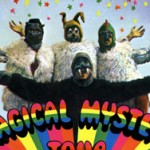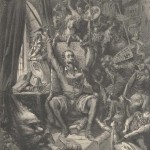I Am the Author
 Your faithful blog committee moderates posts and comments on a rotating basis. I was “on call” on Tuesday evening and, returning home in despair after a night at Miller Park, inadvertently published posts by Professors Greipp and Papke under my own name. The mistake was fixed in the morning.
Your faithful blog committee moderates posts and comments on a rotating basis. I was “on call” on Tuesday evening and, returning home in despair after a night at Miller Park, inadvertently published posts by Professors Greipp and Papke under my own name. The mistake was fixed in the morning.
But I found the latter error intriguing. Here I was, ostensibly the “author” of a post regretting “dominant ideological prescriptions related to, respectively, autonomous individualism and the bourgeois market economy.” It was as if someone had replaced my bedside Edmund Burke with Jean-Paul Sartre.
But here’s the thing. I do agree – in a sense – with David’s point.

 I greatly enjoyed last week’s exchange among colleagues Bruce Boyden, Ed Fallone, and Gordon Hylton regarding literary sequels and the general purposes of copyright law. It is my impression that most blog posts do not purport to be “scholarly,” but the posts by Boyden, Fallone, and Hylton had the length and depth necessary for that characterization. I hated to see the exchange end.
I greatly enjoyed last week’s exchange among colleagues Bruce Boyden, Ed Fallone, and Gordon Hylton regarding literary sequels and the general purposes of copyright law. It is my impression that most blog posts do not purport to be “scholarly,” but the posts by Boyden, Fallone, and Hylton had the length and depth necessary for that characterization. I hated to see the exchange end.  Last Thursday, a brief was filed with the United States Court of Appeals for the Second Circuit in the case of
Last Thursday, a brief was filed with the United States Court of Appeals for the Second Circuit in the case of